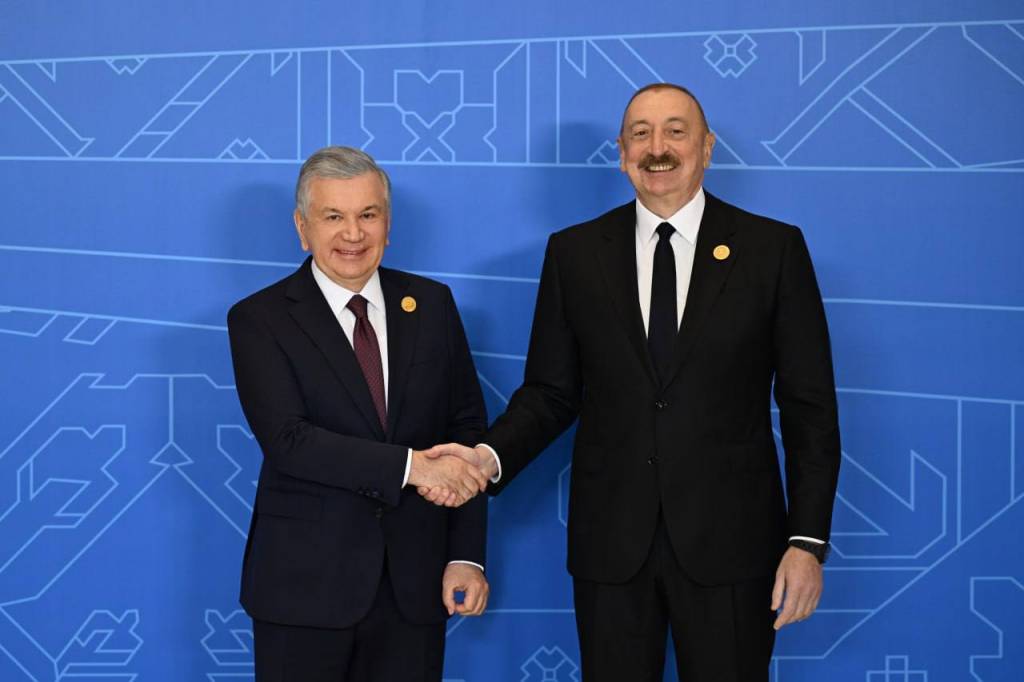
On July 4, the President of the Republic of Uzbekistan Shavkat Mirziyoyev took part in the 17th Summit of the Economic Cooperation Organization (ECO) held in the city of Khankendi.
The event, chaired by the President of the Republic of Azerbaijan Ilham Aliyev, was also attended by the President of the Islamic Republic of Iran Masoud Pezeshkian, President of the Kyrgyz Republic Sadyr Japarov, President of the Republic of Tajikistan Emomali Rahmon, President of the Republic of Türkiye Recep Tayyip Erdoğan, Prime Minister of the Islamic Republic of Pakistan Shehbaz Sharif, Prime Minister of the Republic of Kazakhstan Olzhas Bektenov, Deputy Chairman of the Cabinet of Ministers and Minister of Foreign Affairs of Turkmenistan Rashid Meredov, Acting Deputy Prime Minister of Afghanistan Mullah Abdul Ghani Baradar, ECO Secretary General Asad Majeed Khan, as well as heads of delegations from several other countries and regional organizations.
The prospects for further development of multifaceted cooperation within the ECO framework were discussed, and views were exchanged on pressing international and regional issues.
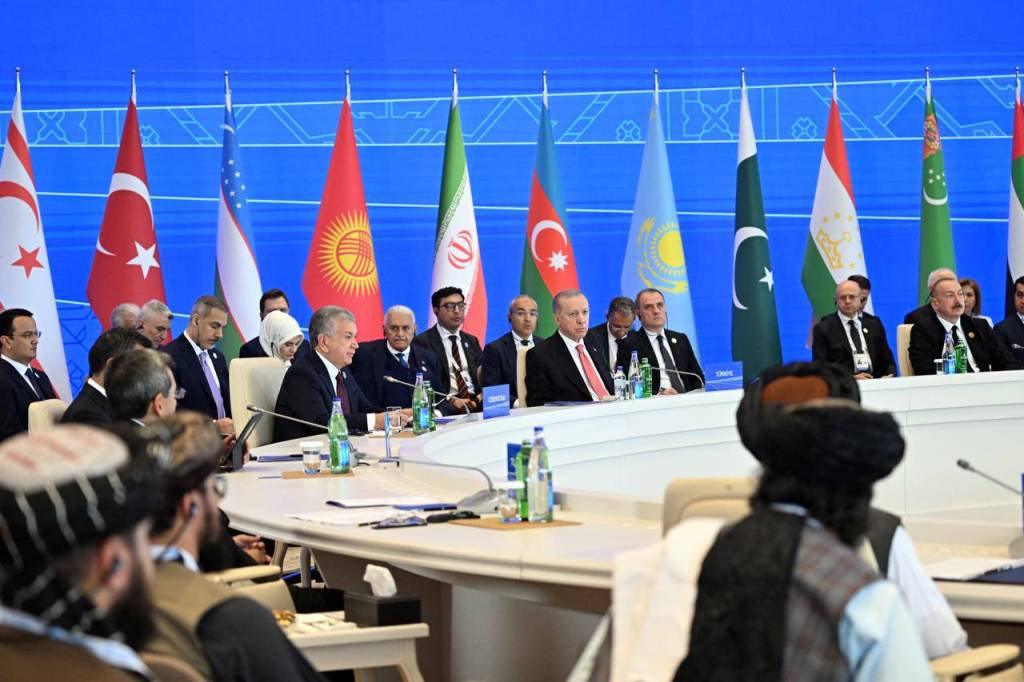
The President of Uzbekistan highlighted the current challenges to security and sustainable development.
The Leader of Uzbekistan once again emphasized the importance of resolving conflicts and disputes through diplomacy and constructive negotiations.
It was underlined that achieving peace and stability in the Middle East is impossible without a just resolution of the Palestinian-Israeli conflict.
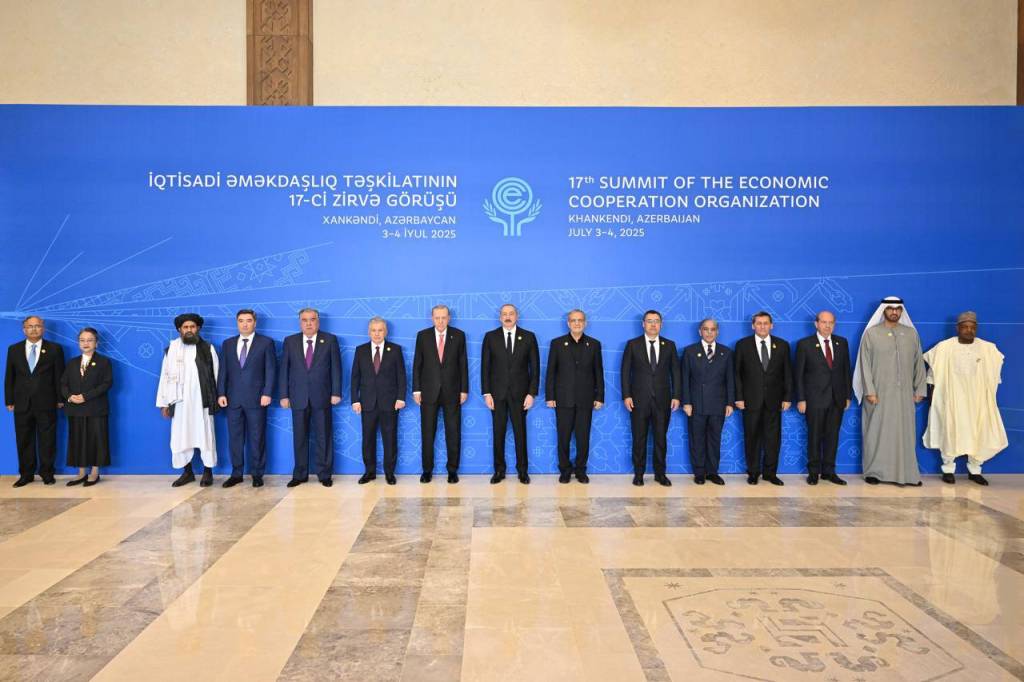
Turning to the meeting’s agenda, the President of Uzbekistan drew attention to several pressing issues.
First and foremost, to advance the Organization’s development priorities in the medium and long term, the importance of adopting the concept “Strategic Goals of Economic Partnership 2035” was highlighted. In addition to traditional areas of cooperation, the document should place special emphasis on strengthening collaboration in innovation, artificial intelligence, and digital technologies.
Issues related to simplifying trade in goods and services, the gradual removal of technical and non-tariff barriers, and the development of e-commerce remain remarkably relevant.
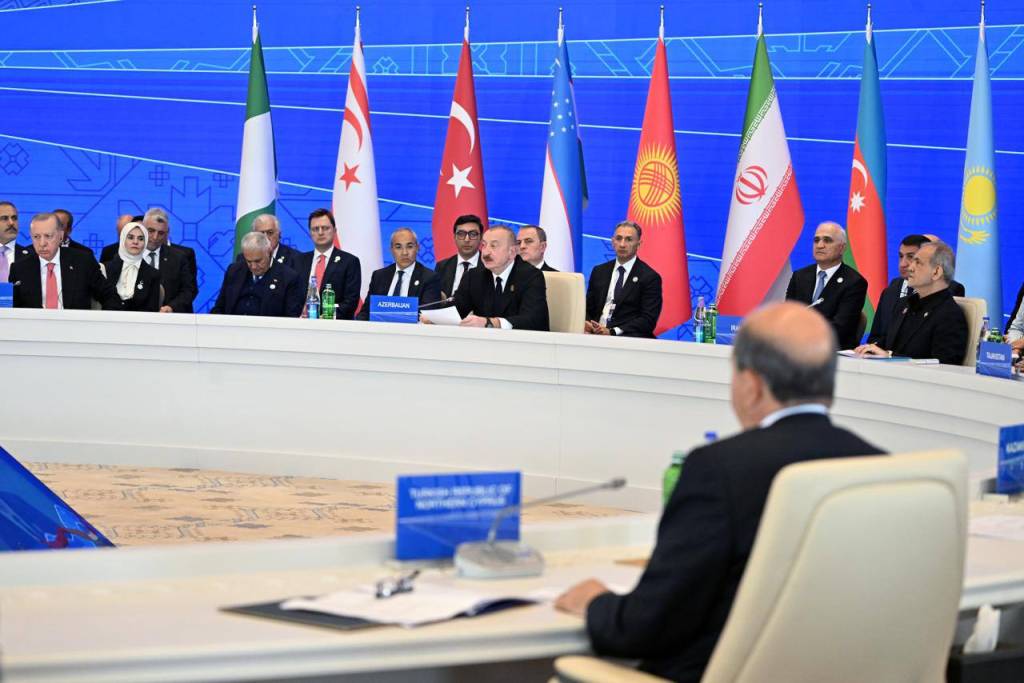
To discuss strategic matters in this direction and adopt the Trade Facilitation Agreement, it was proposed to hold a meeting of trade ministers in Tashkent later this year.
The Head of State also proposed the creation of a system of green corridors for the prompt exchange of information on agricultural trade and the unhindered supply of agricultural products.
The importance of adopting a long-term “EcoInvest” program aimed at elevating investment cooperation to a new level and creating a more transparent and attractive investment environment was noted.
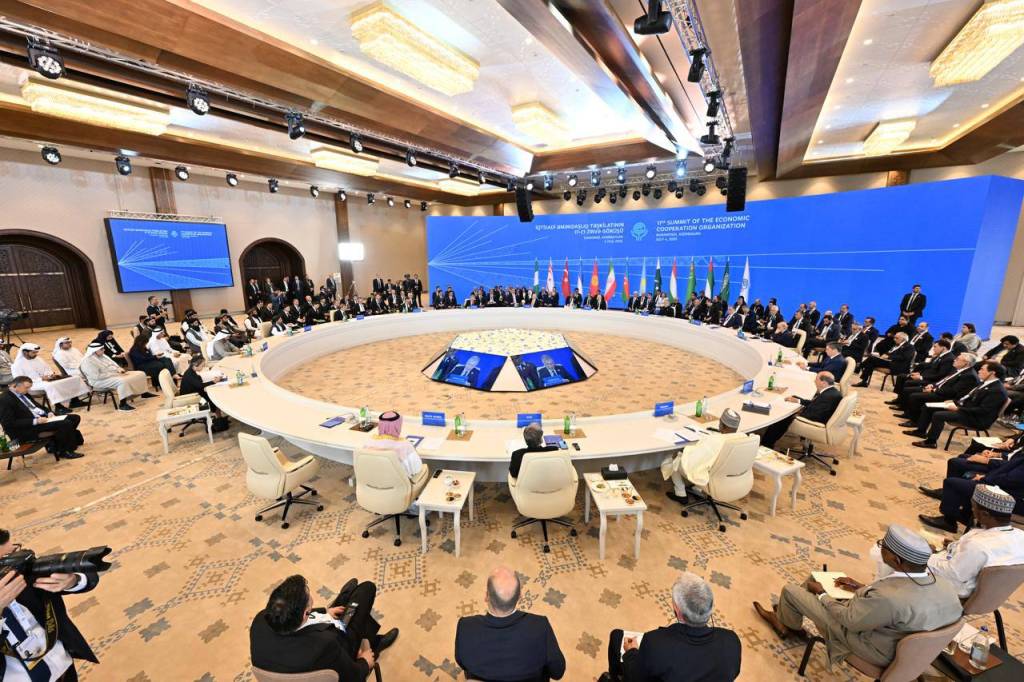
“The main goal of the program should be to attract private investors, banks, and international financial institutions to promising projects in our region”, the President of Uzbekistan emphasized.
In the current geopolitical context, the formation of alternative transportation corridors has been identified as a strategic priority. It was noted that the China – Kyrgyzstan – Uzbekistan railway project, which may be linked to the prospective Trans-Afghan corridor in the future, will enable efficient connectivity of transit networks across the broader region.
The Head of State also proposed accelerating the establishment of a Digital Transport and Customs Authority to ensure a systematic approach to the digitalization of the transport and logistics sector.
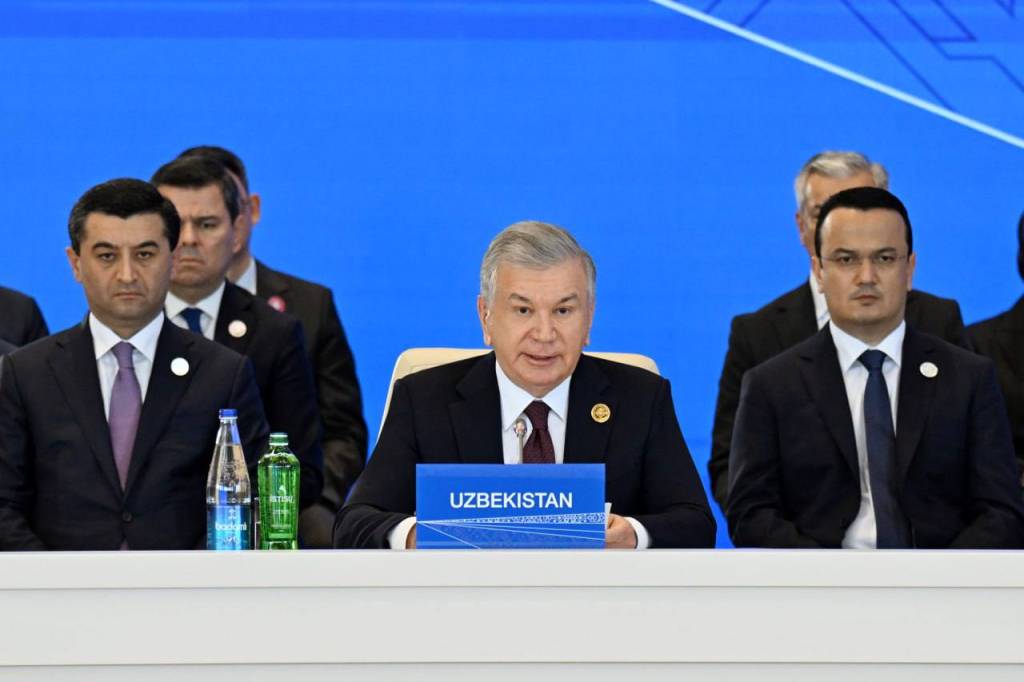
“Our pressing tasks include the opening of new air routes within the region, the introduction of innovative cooperation formats between airlines, and the development of integrated marketing strategies in tourism and aviation”, the President of Uzbekistan stated.
To discuss these issues, it was proposed to hold a forum of national airlines this year in Samarkand.
The President also highlighted the significant potential for doubling the number of tourists. The adoption of a roadmap for expanding tourism services within the framework of the Organization will contribute to achieving this goal.
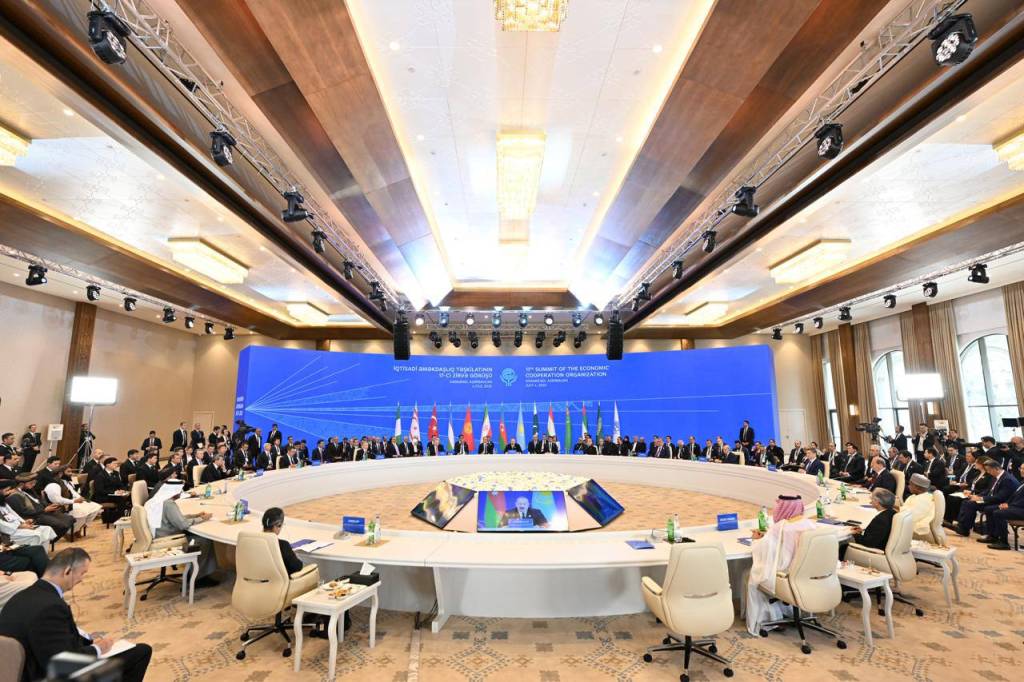
Highlighting the importance of joining efforts on the global climate agenda, the President proposed the development of a transboundary Green Program aimed at creating forests and recreational areas in desert territories.
Positively assessing the work of the High-Level Committee, the Leader of Uzbekistan suggested instructing the Committee to prepare concrete recommendations for improving the activities of the ECO by the next summit.
“Reforms will serve to develop our cooperation at a new level and strengthen the Organization’s standing on the international stage”, the President noted.
In conclusion, the Head of State expressed confidence that the current summit will give a strong impetus and open a new chapter in the multifaceted practical cooperation within the framework of the Economic Cooperation Organization.
UzA








